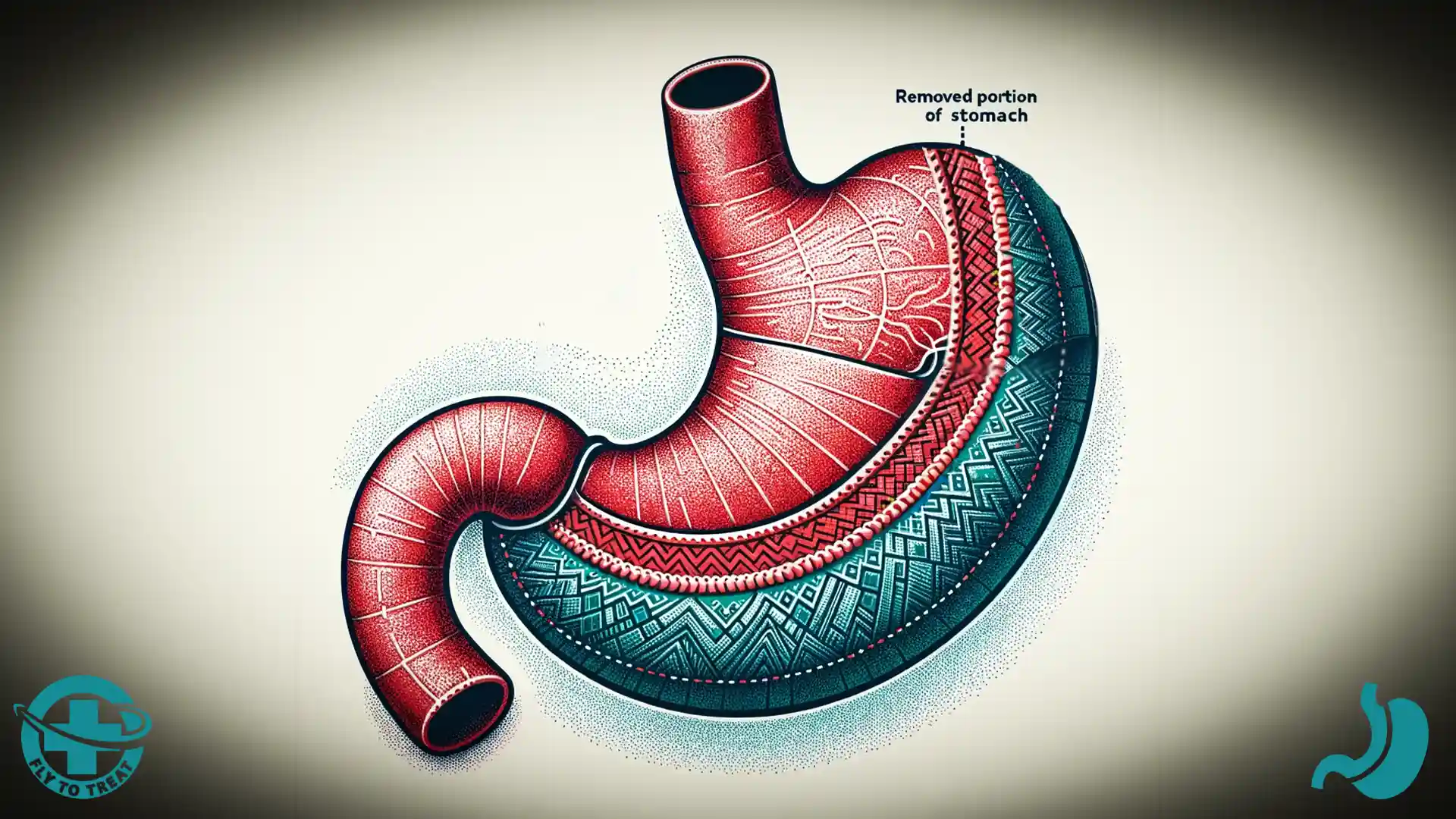
How much weight will I lose after gastric sleeve?
Weight loss is the primary goal of gastric sleeve surgery. However, the extent of weight loss can vary among patients due to factors such as metabolic rate, dietary habits, physical activity levels, and adherence to post-operative guidelines. Bariatric surgeries such as VSG and ESG can serve as valuable tools to facilitate weight loss, but individual outcomes can vary. Adopting healthy lifestyle habits, such as regular exercise, balanced nutrition, and ongoing support from healthcare professionals, and staying committed to post-operative guidelines are essential for maximizing VSG/ESG weight loss success.
How to lose weight after gastric sleeve
Significant weight loss is expected following a gastric sleeve surgery, but sustained success requires dedication. Here are some key points:
Focus on Protein: Prioritize high-protein foods in smaller portions to feel fuller for longer. This supports muscle retention and metabolism, which is crucial for weight loss after gastric sleeve surgery.
Mindful Eating: Embrace slow, mindful eating, savoring each bite. This helps with portion control and allows your body to register satiety signals, preventing overeating.
Hydration is Key: Drink plenty of water throughout the day. This aids digestion, prevents dehydration, and promotes a feeling of fullness, helping in weight loss with gastric sleeve surgery.
Exercise Regularly: Physical activity is vital. Start with gentle walks and gradually increase intensity as your body adapts. Exercise boosts metabolism and contributes to long-term weight loss after VSG.
Embrace Support: Surround yourself with a supportive network of family and healthcare professionals who can guide and motivate you on your journey.
Adhering to these guidelines, alongside your doctor's specific recommendations, can ensure a healthy and sustainable weight loss after the gastric sleeve journey.
The average amount of weight loss after gastric sleeve surgery
The average weight loss after gastric sleeve, also known as VSG or ESG, can be influenced by various factors, including body composition, age, sex, body build, physical activity levels, lifestyle, and dietary behaviors. One significant factor affecting weight loss with gastric sleeve surgery is the patient's initial weight. Individuals with higher initial weights tend to experience more substantial weekly weight loss. Gender also plays a role, as men typically have higher muscle mass, resulting in faster VSG weight loss than women. Dietary choices are crucial; consuming a healthy diet while limiting high-calorie foods and alcohol can optimize VSG weight loss results. Additionally, exercise levels are essential; patients who increase their physical activity level typically experience more significant weight loss after sleeve gastrectomy.
Many surgeons believe that patients can achieve between 60% and 100% of their excess weight with the surgery. The minimum average weight loss after vsg is approximately 60% of excess weight. Achieving this level often improves weight-related co-morbidities, making it a common goal for patients undergoing gastric sleeve surgery. However, most patients often exceed this minimum average weight loss, experiencing even greater success.
What happens after gastric sleeve surgery?
Most of the stomach is cut during gastric sleeve surgeries so the patient can eat less. On top of that, the part of the stomach responsible for the hunger hormone is removed during surgery so the patient can feel less hungry. Patients are unable to eat large portions of food and don't have the appetite for a large volume of food, so they are more likely to lose weight. Usually, patients can experience rapid average weight loss with gastric sleeve a month after surgery. After six months, patients lose about half of their excess weight. These numbers can increase in a year and 18 months after the surgery.
The diet after gastric sleeve surgery is essential and should be considered. For the first weeks, patients should expect the diet below:
· 0-3 days post-op: clear liquids only (water, tea, decaf coffee)
· 3-14 days post-op: liquids & purees only
· 14-28 days post-op: soft foods & liquids only
· 28+ days post-op: reintroduction of solid foods
Average weekly weight loss after gastric sleeve
In this part, we will talk about the amount of average weight loss with gastric sleeve per week for patients regardless of their lifestyle, physical activities, and many other factors.
It can differ from patient to patient, but the weight loss each patient experiences weeks after surgery is not comparable with future long-term weeks. In the first weeks, patients eat just liquid food, and they cannot eat a large amount of food, so they experience considerable weight loss. In the first months, patients usually lose weight by about 3% weekly.
Average monthly weight loss after gastric sleeve
VSG or ESG weight loss a month after surgery is substantial and rapid. Most patients lose about 10 to 15 percent of their excess body weight. But months after that, the weight loss pace would be slower, and the weight loss would be less
Average weight loss with gastric sleeve after years
On this point, patients after one year after gastric sleeve surgery are closer to their ultimate weight loss goals. They usually experience that about 65 to 70% of their excess weight can be lost, and they feel relieved. Although people may experience the need for abdominoplasty surgery at different stages, they usually opt to undergo this surgery after 12 months. After 16 months, patients can experience 70 to 75% of their excess weight loss. After four years, many patients can maintain their weight loss and experience improvement in their co-morbidities. Their BMI is as low as possible, they are fit, and the number of weight-related diseases is reduced to a great extent. Ten years after gastric sleeve surgery, patients can see the enormous benefits of surgery, and their life expectancy has dramatically increased.
Estimated weight loss with gastric sleeve
A gastric sleeve weight loss timeline calculator is critical for patients to estimate the average weight loss with gastric sleeve surgery they can experience. For this, you should determine your ideal body weight. Below, you can see how you can calculate your ideal body weight.
Your ideal BMI is between 18.5 and 24.9.
• BMI = kg/m2
• If your ideal BMI = 25, and your height = 1.8m, then;
• Your ideal weight = 25 x 1.8 x 1.8 = 80 kg (approx.)
After that, you should determine your actual current body weight. For example, your current body weight is 130 kg. Then, it's time to determine your excess body weight
• Excess weight = Current Weight – Ideal Weight
• In this example, your excess weight = 120 – 80 = 40 kg
After that, it's time to determine your expected average weight loss with gastric sleeve surgery. If you lose 15 percent of excess weight in one month after surgery, you should lose about six kilograms. Then you can calculate other months
• In one month: 15% of excess weight = 6 kg weight loss
• At three months: 25% of excess weight = 10 kg weight loss
• At six months: 50% of excess weight = 20 kg weight loss
At 12 months: 70% of excess weight = 28 kg weight loss
Why do you not lose weight after gastric sleeve?
While weight loss after gastric sleeve surgery can be significant, sometimes individuals experience plateaus. Several factors could contribute to this:
• Dietary Slip-Ups: Unhealthy snacking, skipping meals, or consuming sugary drinks can sabotage progress.
• Insufficient Protein Intake: Not prioritizing protein in your diet can lead to muscle loss and a slower metabolism, hindering weight loss after VSG.
• Medication Interactions: Certain medications can affect weight loss. Discussing this with your doctor is crucial.
• Slow Remnant Stomach Pouch Expansion: In rare cases, the remaining sleeve pouch may gradually expand, impacting weight loss potential.
If you're concerned about your lack of weight loss after sleeve gastrectomy, consult your healthcare professional. They can assess your specific situation and develop a personalized strategy to help you reach your weight loss goals.
How to lose belly fat after gastric sleeve
While the gastric sleeve promotes weight loss after VSG, tackling specific areas like belly fat often requires additional strategies. Here are some key considerations:
• Focus on Fiber: Consume fiber-rich fruits, vegetables, and whole grains. They promote satiety, stabilize blood sugar, and may aid in reducing belly fat.
• Strength Training: Incorporate strength training exercises alongside cardiovascular activities. Building muscle mass increases your metabolism, which can help shed even stubborn belly fat.
• Manage Stress: Chronic stress can contribute to increased belly fat. Seek healthy ways to manage stress, such as yoga or meditation.
• Stay Hydrated: Drinking plenty of water throughout the day keeps you feeling full, flushes toxins, and may help specifically with weight loss after gastric sleeve surgery.
MEDICALLY REVIEWED BY: Dr. Ali Bazazi
AUTHOR: FlytoTreat's team of Authors
28 February 2024 - Updated At: 05 May 2024
Related Articles
Comment





